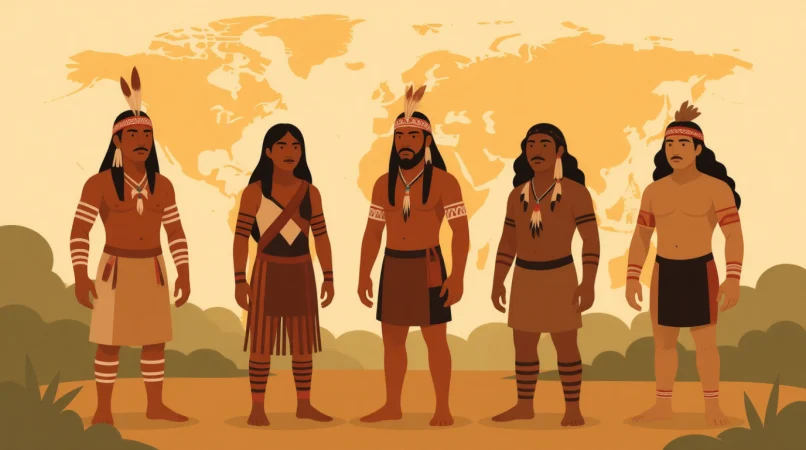Indigenous means “original to a place” — referring to people, communities, plants, or species that naturally belong to a specific region.
If you’ve ever searched “what does indigenous mean,” “what does the word indigenous mean,” “what does indigenous mean in history,” “what’s indigenous mean,” or even “what does indigenous mean for kids,” you’ll find endless definitions that feel too academic. But the true meaning is simple, human, and deeply connected to identity, culture, and origin.
In today’s world — from social studies to environmental science, politics, cultural discussions, and even textbooks — the term indigenous appears everywhere.
Understanding it isn’t only useful; it’s essential. This guide breaks down the meaning, history, usage, misconceptions, and modern variations like Afro-Indigenous and non-Indigenous, all in clear, easy language.
What Does Indigenous Mean? (Definition & Meaning)
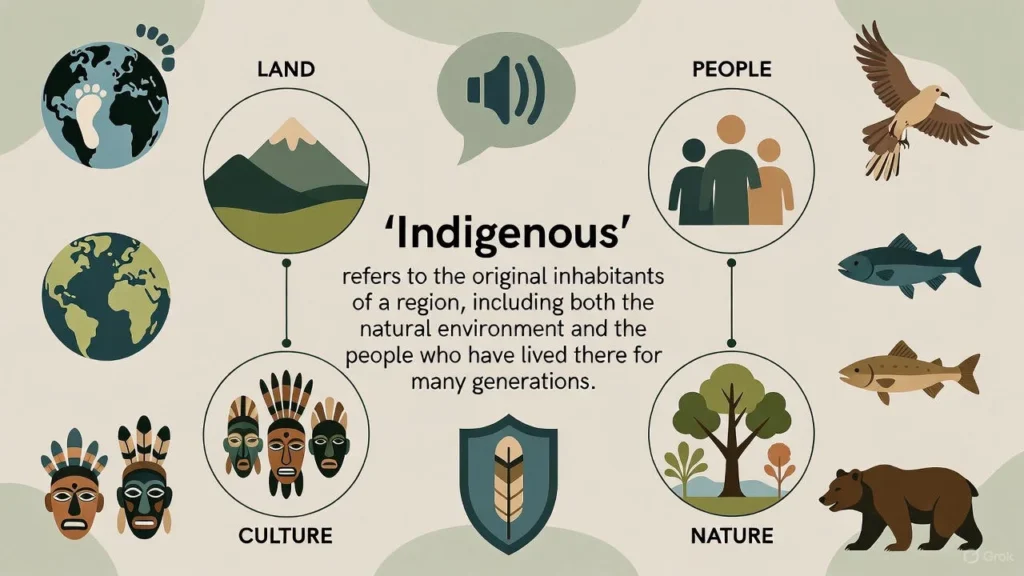
At its core, indigenous means:
➡️ “Naturally existing in a place” or “originating from that land.”
The word is often used to describe:
- Indigenous people
- Indigenous cultures
- Indigenous plants and species
- Indigenous languages
- Indigenous traditions
General Meaning
- Original or native to a region
- Belonging naturally to a place
- Not introduced from elsewhere
When People Ask:
- What does indigenous mean?
- What is indigenous mean?
- What does the term indigenous mean?
- What does the indigenous mean?
The answer is simply: something or someone that comes from that land originally.
Examples
- “Kangaroos are indigenous to Australia.”
- “The Māori are indigenous to New Zealand.”
- “These plants are indigenous to the Amazon rainforest.”
For Kids Explanation
If your query is “what does indigenous mean for kids?”:
👉 Indigenous means “the first people who lived in a place.”
Related Terms
- Afro-Indigenous: people with both African and Indigenous ancestry
- Non-Indigenous: people who are not native to the land
When people ask what does non-indigenous mean, the answer is: “not originally from this place.”
Origins & History of the Word “Indigenous”
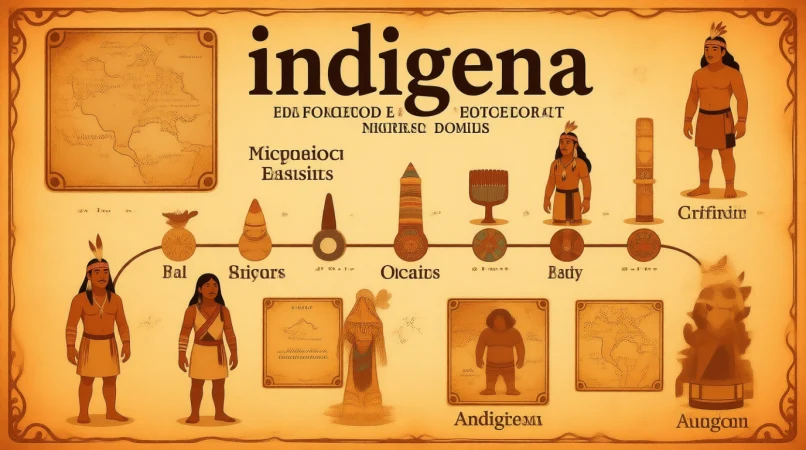
The word indigenous comes from the Latin term indigēna, meaning:
- “from the land”
- “native-born”
- “sprung from the earth”
Historical Use
If you searched “what does indigenous mean in history”, here’s the simplest explanation:
Historically, indigenous was used to describe the first people who lived in a land before colonization, including groups like:
- Native Americans
- Aboriginal Australians
- First Nations in Canada
- Māori in New Zealand
Later, the term expanded beyond humans to include:
- Indigenous species
- Indigenous ecosystems
- Indigenous languages
Modern Meaning
Today, indigenous has cultural, political, biological, and environmental importance.
It refers not only to origin but also to:
- cultural identity
- traditional practices
- ancestral heritage
- community sovereignty
Usage in Different Contexts
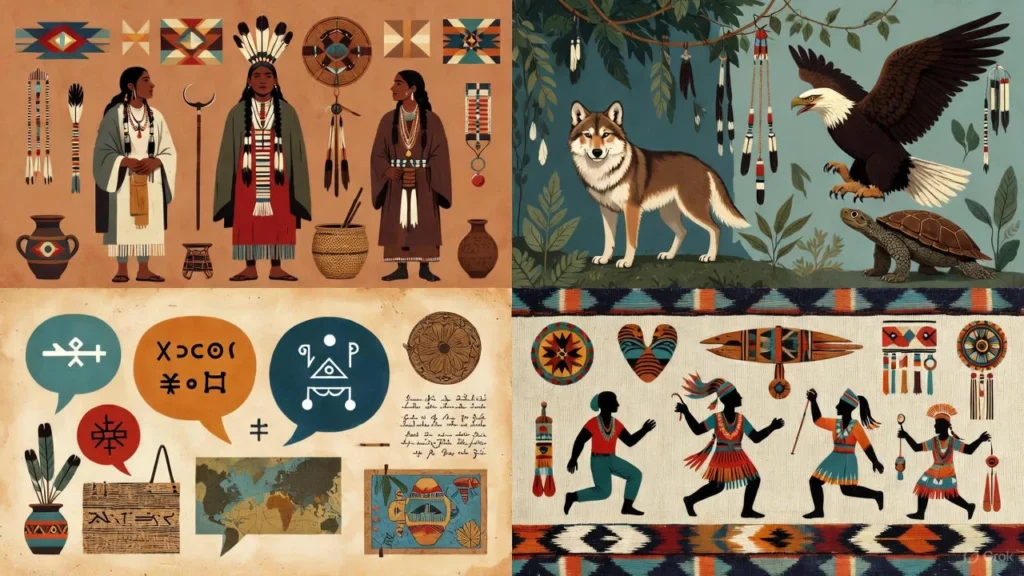
The meaning of indigenous changes slightly depending on where it’s used:
1. In Culture & Identity
When people ask “what does the word indigenous mean,” they often refer to indigenous peoples who:
- are the first inhabitants of a land
- have unique traditions, languages, and beliefs
- maintain cultural ties to their ancestors
- have survived colonization or displacement
Example:
“The Sámi are indigenous to northern Scandinavia.”
2. In History & Social Studies
In historical terms, indigenous describes:
- original populations
- pre-colonial societies
- early civilizations
This is why students ask “what does indigenous mean in history?”
Example:
“Indigenous cohorts shaped the early history of the Americas.”
3. In Science & Environment
Indigenous species = naturally occurring, not imported.
Example:
“Polar bears are indigenous to the Arctic.”
4. In Modern Conversations
People may casually say:
- “Is this food indigenous to this region?”
- “Are these plants indigenous here?”
5. In Identity Terms
Queries like “what does Afro-Indigenous mean?” refer to people whose identity includes both African and Indigenous heritage.
Common Misunderstandings & Clarifications

❌ Misconception 1: Indigenous = early
Wrong. Indigenous communities have rich knowledge, advanced traditions, and complex systems.
❌ Misconception 2: Indigenous = minority
Not always. In some regions, Indigenous groups form the majority.
❌ Misconception 3: Indigenous = rural
Indigenous people live everywhere — cities, villages, reserves, and more.
❌ Misconception 4: Indigenous = only about people
No. It also refers to plants, animals, languages, and ecosystems.
❌ Misconception 5: Indigenous means “belonging to one ethnicity”
Not true. The term is global, applying to many groups around the world.
Alternatives & Synonyms
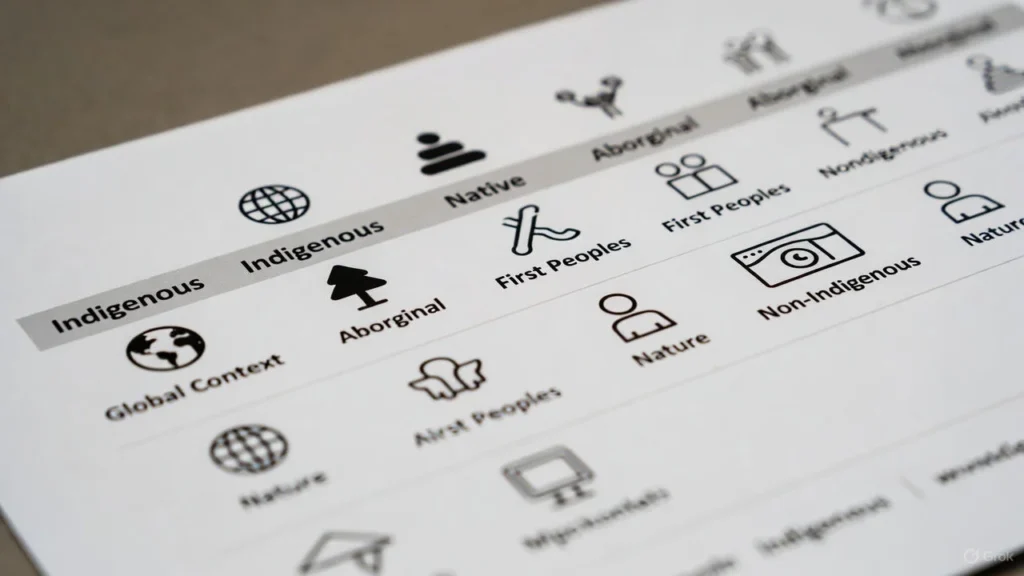
Here are related words that people often mix with indigenous:
| Term | Meaning | Correct Usage |
|---|---|---|
| Native | Born in a place naturally | Neutral, sometimes casual |
| Aboriginal | First peoples | Used mainly in Australia |
| First Peoples | Original inhabitants | Canada & global contexts |
| Tribal | Group with cultural unity | Specific to certain societies |
| Ethnic Group | Cultural community | Broader category |
| Non-Indigenous | Not native | Opposite of indigenous |
All connect to the original meaning of indigenous: originating from the land.
Frequently Asked Questions (FAQ)
1. What does indigenous mean?
It means original or native to a place.
2. What does the word indigenous mean in history?
It refers to the first people who lived in a land before colonization.
3. What is the term indigenous used for today?
For people, cultures, languages, plants, animals, and ecosystems that come from a place originally.
4. What does non-indigenous mean?
Not native to a region.
5. What does Afro-Indigenous mean?
Someone with both African and Indigenous ancestry.
6. What does indigenous mean for kids?
The first people who lived in a place.
7. Is indigenous the same as native?
Often yes, but indigenous carries deeper cultural and historical meaning.
Conclusion
Understanding the meaning of indigenous helps us respect identity, culture, history, and the natural world.
If you searched “what does indigenous mean,” “what does indigenous mean in history,” “what does the term indigenous mean,” or anything similar, the message is the same: indigenous refers to the original people or species of a region, connected to their land, traditions, and ancestors.
It is more than a definition — it reflects heritage, belonging, and the deep roots of communities and ecosystems worldwide.

